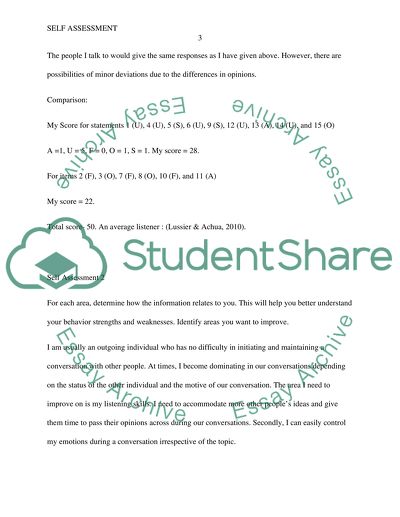Cite this document
(Listening Skills Essay Example | Topics and Well Written Essays - 1250 words, n.d.)
Listening Skills Essay Example | Topics and Well Written Essays - 1250 words. https://studentshare.org/sociology/1595102-self-assessment-chapter-6-and-7
Listening Skills Essay Example | Topics and Well Written Essays - 1250 words. https://studentshare.org/sociology/1595102-self-assessment-chapter-6-and-7
(Listening Skills Essay Example | Topics and Well Written Essays - 1250 Words)
Listening Skills Essay Example | Topics and Well Written Essays - 1250 Words. https://studentshare.org/sociology/1595102-self-assessment-chapter-6-and-7.
Listening Skills Essay Example | Topics and Well Written Essays - 1250 Words. https://studentshare.org/sociology/1595102-self-assessment-chapter-6-and-7.
“Listening Skills Essay Example | Topics and Well Written Essays - 1250 Words”. https://studentshare.org/sociology/1595102-self-assessment-chapter-6-and-7.


